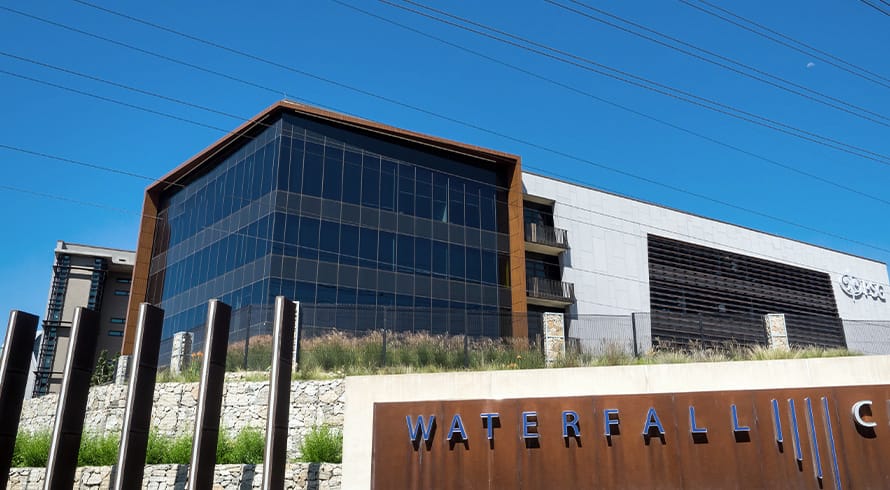Take two: Perfection of general notarial bonds and business rescue
At a glance
- The ongoing pandemic is expected to worsen South Africa's economic downturn and potentially push it into a deep recession, leading many distressed companies to consider restructuring, including business rescue.
- Creditors face a race against time to perfect their general notarial bonds (GNBs) before a company enters business rescue proceedings, as this provides them with a real right over the company's movable assets.
- During business rescue, legal proceedings and enforcement actions against the company are generally suspended, requiring creditors to seek consent from the business rescue practitioner (BRP) to perfect their GNBs. The BRP may refuse consent, as the perfection of GNBs can restrict their use of assets and impact the chances of successful business rescue. Alternatively, creditors can seek protection under Section 134(3) of the Companies Act, but challenges arise regarding the classification of an unperfected GNB as a "security" or "title interest."
Perfection of GNB’s before business rescue
Where a creditor has reason to believe that a debtor company is in severe financial distress and that the company may be placed in business rescue, either by means of the passing of a resolution by the board of the company or by court application issued by an affected person, creditors often find themselves in a race against time to perfect their GNBs before the company is placed in business rescue. Perfection prior to business rescue is most certainly the best possible scenario for a creditor as this affords the creditor a real right over the movable assets of the company. Once business rescue proceedings commence, the creditor will be treated as a secured creditor and will have some leverage over the manner in which the appointed business rescue practitioner (BRP) deals with the movable assets of the company.
As noted in the above alert, perfection of a GNB entails a successful application to the High Court for an order that such property be attached and actual possession of the property is obtained usually by the sheriff of the High Court. Even though there is limited authority for the view that perfection applications are by their nature urgent, this proposition has not yet been universally embraced by the bench and the court process does not always allow for the desired speed.
For example, despite the fact that creditors are, as a matter of course, entitled to approach the court on an urgent basis to perfect their securities, the current practice, at least in the Gauteng Division of the High Court, is that the normal time for the bringing of an urgent application is at 10h00 on the Tuesday of the motion court week unless there is extreme urgency. An applicant must establish urgency and the urgency must be to such a degree that the court is prepared to allow for a relaxation in respect of the normal requirements. In this case, imminent business rescue is an issue that will need to be evaluated and weighed by the court.
It is therefore not inconceivable that a company may be placed in business rescue, either by resolution or court order (subject to similar urgency restrictions set out above), while the perfection application is pending. The court process therefore comes with its own challenges as far as timing is concerned.
As the court process does not always allow for speed, there are instances where a creditor may be able to perfect its GNB by agreement with the debtor company prior to the commencement of business rescue proceedings and in so doing front run and/or circumvent the court process to obtain a perfection order altogether. This may however pose some risks for creditors as other creditors, particularly preferent creditors such as the South African Revenue Services that would otherwise rank above a creditor with an unperfected GNB under the Laws of Insolvency, may seek to challenge the consensual perfection.
Perfection of GNB’s during business rescue
Section 133 of the Companies Act, 2008 (Companies Act) places a general moratorium on legal proceedings against the company while the company is in business rescue. That section states that no legal proceedings, including enforcement action against the company or in relation to any property belonging to the company or lawfully in its possession may be commenced with, save in certain exceptions, for example where consent is granted by the court or obtained from the BRP.
Creditors may therefore approach the BRP at any time after the commencement of business rescue proceedings for written consent to allow the perfection of a GNB. However, it is often the case that the BRP will refuse to grant their consent and/or will most likely oppose the granting of such consent by a court as the perfection of a GNB will inter alia, (a) restrict the BRP’s use of the movable assets, (b) discourage the granting of any post-commencement finance (PCF) and (c) diminish the prospect of a successful business rescue.
A creditor may also consider protecting its rights by placing reliance on the provisions of section 134(3) of the Companies Act. That section states that if, during a company’s business rescue proceedings, the company wishes to dispose of any property over which another person has any “security or title interest”, the company must obtain the prior consent of that person unless the proceeds of the disposal are sufficient to fully discharge the indebtedness protected by that person’s security or title interest, and provided the company promptly pays to such person the sale proceeds of the property.
A creditor may therefore argue that even its unperfected bond constitutes a “security or title interest” over the movable assets and accordingly seek to enforce the provisions of section 134(3). This argument does however come with its own challenges as the Companies Act does not provide a definition of “security” or “title interest” and this has resulted in some debate as to whether or not an unperfected GNB can be classified as either a “security” or “title interest”.
What we also see in practice is that BRPs are more inclined to grant their consent for a creditor to perfect its GNB in exchange for PCF. This is so because PCF can be the lifeblood of any company in business rescue and it is often a challenge for companies in distress to convince investors or lenders to advance PCF where there is a valid concern that those investors or lenders may never see a return on their investment. Therefore, there may well be scope for a creditor to perfect its GNB in business rescue but that may require some compromise in the form of advancing PCF as a quid pro quo.
Concluding Observations
The timing aspect of perfecting a GNB in the face of a business rescue is quite critical in ensuring that the rights of a creditor are sufficiently protected. However, even in a situation where the creditor was not quick enough off the marks to perfect its GNB it is important for the creditor to quickly seek guidance and identify alternative avenues to enforce its security and protect its rights.
The information and material published on this website is provided for general purposes only and does not constitute legal advice. We make every effort to ensure that the content is updated regularly and to offer the most current and accurate information. Please consult one of our lawyers on any specific legal problem or matter. We accept no responsibility for any loss or damage, whether direct or consequential, which may arise from reliance on the information contained in these pages. Please refer to our full terms and conditions. Copyright © 2026 Cliffe Dekker Hofmeyr. All rights reserved. For permission to reproduce an article or publication, please contact us cliffedekkerhofmeyr@cdhlegal.com.
Subscribe
We support our clients’ strategic and operational needs by offering innovative, integrated and high quality thought leadership. To stay up to date on the latest legal developments that may potentially impact your business, subscribe to our alerts, seminar and webinar invitations.
Subscribe




